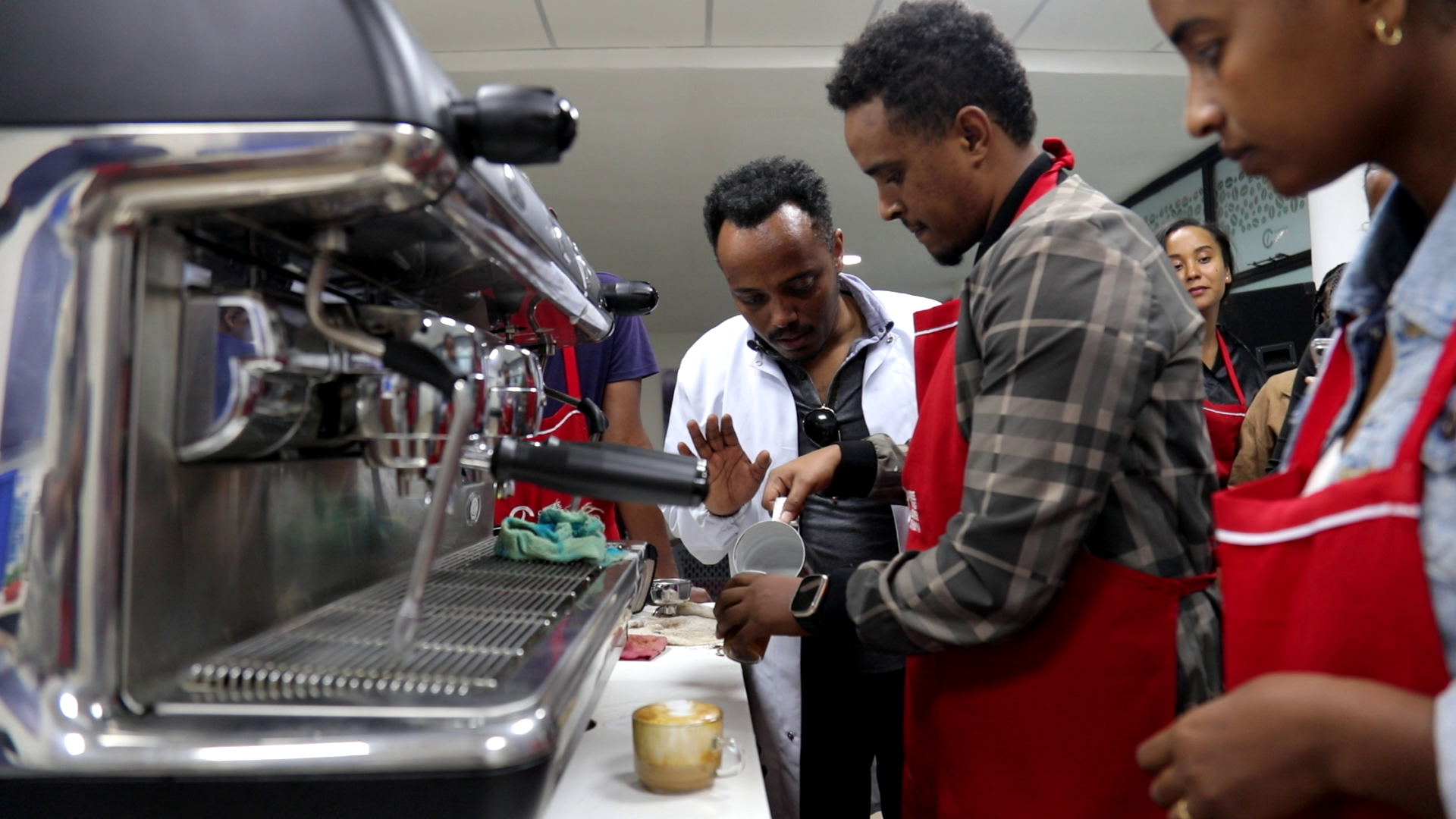Ethiopia is known throughout the world as the cradle of coffee. For Ethiopians, in fact, coffee is not simply a drink: it is culture, identity, ritual and, above all, the future. From the verdant heights of Sidama to the bars of the capital Addis Ababa, each bean tells an ancient story, made of gestures passed down for millennia and of a land rich in history. But today, that story is enriched with a new chapter: that of professionalization, innovation and empowerment.
For years, Italy – through the Italian Cooperation – has been alongside the country to strengthen its most emblematic and strategic production chain. The Italian Agency for Development Cooperation (AICS), in fact, has been working in Ethiopia for over a decade to improve the conditions of production, processing and marketing of coffee, with targeted interventions along the entire chain: from post-harvest to professional training, up to the promotion of the product on international markets.
In this context, the Coffee Training Center (CTC) in Addis Ababa fits in , a project of excellence realized with the contribution of AICS, with the Ernesto Illy Foundation and the technical support of UNIDO, which represented a turning point in the professionalization of the sector. The financing of the Italian Cooperation for the creation of the CTC has allowed the center to be equipped with the most modern technologies and skills available on the African continent.
The establishment of the Coffee Training Centre (CTC) in Addis Ababa represents a significant milestone in the cooperation between the public and private sectors for the sustainable development of the coffee supply chain in Ethiopia . The centre is part of a broader programme aimed at improving the quality and competitiveness of Ethiopian coffee on international markets. The CTC structure was conceived as a centre of excellence for training and innovation, offering specialised courses for producers, cooperatives and operators in the sector. Training activities cover various aspects of the coffee supply chain, from cultivation and harvesting to processing, roasting and marketing, with a particular focus on sustainability and product traceability.
The CTC, inaugurated in 2021, is in fact the first advanced training center on coffee in Africa and a continental point of reference for quality and innovation in the processing of the product. The CTC has highly specialized laboratories – for the quality control of green coffee, professional tasting (cupping), roasting, blending, industrial processing and packaging – as well as two classrooms, a conference room, a cafeteria and a bar equipped for both espresso and slow preparation.
To date, the center has trained hundreds of students and thousands of candidates have already registered for the next sessions. Its training model aims to expand to other African countries, transforming the CTC into a regional platform for technical training and professional empowerment in the coffee value chain.
But AICS’s commitment is already projected towards a further step: “Italy’s support for the Ethiopian coffee supply chain is the result of a coherent and continuous vision, which starts from the harvest fields to the international markets, passing through training, transformation and promotion of the product. Today, with an initiative of over 12 million euros, we are accompanying this path with an advanced project to minimize the risk for investments, intended to strengthen the competitiveness of the sector, attract private capital and offer new economic opportunities to local communities. The CTC is an African excellence and a starting point: the goal is to build an Ethiopian coffee ecosystem that is increasingly solid, sustainable and open to the world”, explains Michele Morana, director of the AICS office in Addis Ababa.
Rut and Mistir: two faces and two stories that embody the results of far-sighted cooperation
Rut Wegayew, 25, is a young student in Food Science and Nutrition who, thanks to an internship at CTC, discovered her vocation in cupping , the sensorial analysis of coffee. “Coffee has always been part of my life, since childhood. Now it will also become my profession,” says Rut. Her goal is clear: to become a nationally recognized professional and contribute to the qualitative evolution of Ethiopian coffee. Hers is a story of passion and redemption, made possible by a center that offers concrete skills and international visibility to young local talents. Rut is an example of how training can transform a cultural bond into a global professional career.
Mistir Zergaw, 40, originally from Sidama – a historic coffee-producing region – started roasting coffee using the traditional method as a child. Today, she is an industrial producer. Thanks to CTC, she has been able to hone her technical and entrepreneurial skills, launching a packaged product that combines the strength of tradition with the drive of innovation. “The coffee ceremony is a social ritual. But now we can also transform it into economic growth for communities,” Mistir says with a smile. By combining ancestral methods with modern processes, Mistir has managed to bring packaged Ethiopian coffee to local and international markets, creating jobs and enhancing the resources of the territory.
The stories of Rut and Mistir represent the beating heart of the work carried out by the Italian Cooperation in Ethiopia: promoting economic autonomy, production quality and the role of women in strategic sectors for local development. The CTC is only one stage – albeit a fundamental one – of a long journey that continues with conviction, competence and shared vision.
Production and editing: Roberto Capocelli
